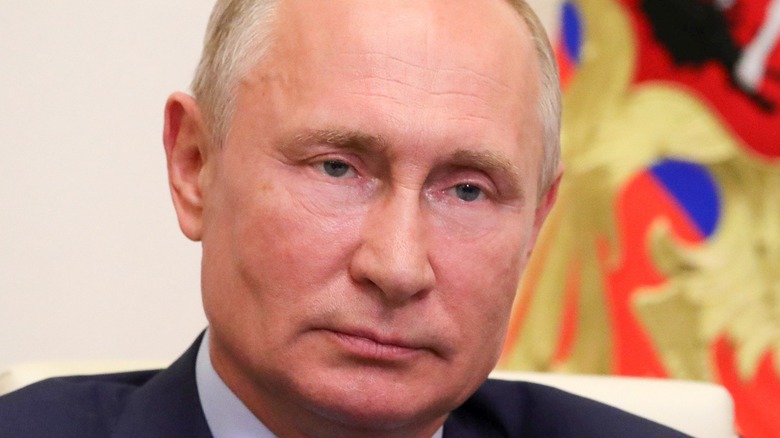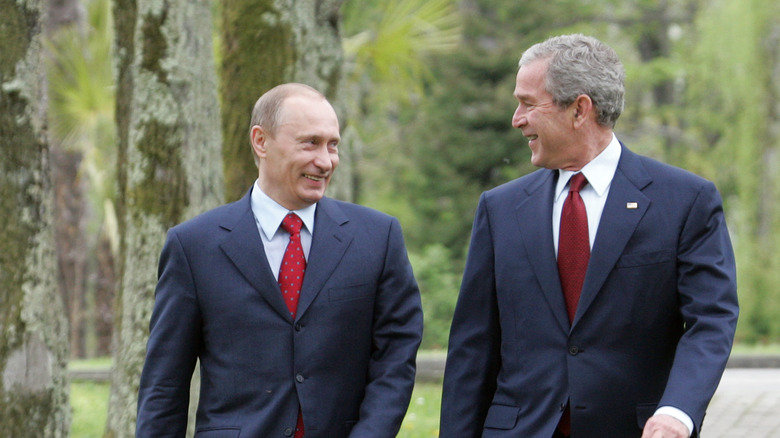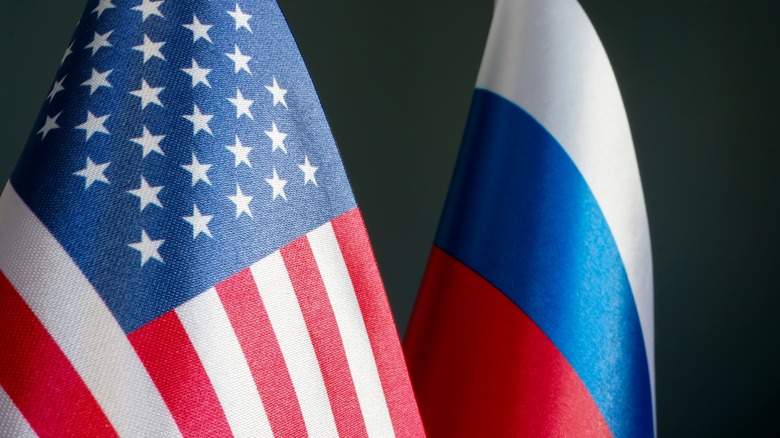How Vladimir Putin Responded To 9/11
It could be argued that few geopolitical relationships on Earth has been more complex than the one between the United States and Russian President Vladimir Putin. Tensions between the two sides have ebbed and flowed for the better part of two decades, ranging from prudently diplomatic to cold and openly hostile (per The Brookings Institution).
One of the darkest and most difficult moments in modern United States history was September 11, 2001. Multiple orchestrated terrorist attacks struck the World Trade Center and the Pentagon, with an additional highjacked plane being brought down in rural Pennsylvania. The United States followed with a lengthy military campaign in the Middle East that drew criticism from some international leaders when the focus of the campaign shifted seemed to shift from a war on terror to overthrowing Iraqi dictator Saddam Hussein.
Given the state of the United States-Putin relationship in the late 2010s and early 2020s, it may be surprising that things were much different early in Putin's presidency, especially surrounding the events of 9/11.
Putin issues a warning day ahead of attacks
According to The Brookings Institution, on September 9, 2001 — just two days before the attacks of 9/11 — Vladimir Putin called United States President George W. Bush. Both were early in their presidential terms, with Bush having taken office earlier that year, and Putin having served a partial term after the resignation of the previous president, Boris Yeltsin, in 1999, before winning the 2000 Russian presidential election.
Putin's call was to share important information that his nation had recently obtained. Ahmad Shah Massoud, a leader of the anti-Taliban Northern Alliance, which was supported by Russia, was assassinated by two suicide bombers posing as journalists. Per Brookings, Putin reportedly warned President Bush of "a foreboding that something was about to happen, something long in preparation."
Two days later, the United States witnessed the worst terrorist attacks in the nation's history. Other countries quickly offered support, including Russia, with Putin allowing the United States to use Russian air space and assisted in search-and-rescue operations (via History Colored). Russia also possessed a great deal of knowledge when it came to operations in Afghanistan dating back to the Soviet era, something which was also useful to the United States.
The relationship deteriorates
The United States-Russia relationship in the direct aftermath of the 9/11 terrorist attacks is often considered the high watermark between the two countries in the years after the fall of the Soviet Union, per The Brookings Institute. However, things quickly hit the skids.
The United States' effort to defeat the Taliban — something Russia was also very interested in accomplishing — morphed into a war bent on overthrowing Iraqi leader Saddam Hussein. According to History Colored, this change in direction wasn't a popular choice with several nations including France, Germany, and Russia. The relationship between the United States and Russia deteriorated even further as the years went on.
Putin thought that working with the United States would lead to Russia being recognized as a world power after years of rebuilding in the post-Soviet-Union era. He also believed that Russia's cooperation in the early 2000s would help prevent NATO from extending its reach farther east. This point, in particular, became a major sticking point in the years to come and is believed to be one of the main factors in Russia's invasion of Ukraine in 2022, a decision that has been highly criticized by much of the rest of the world.


